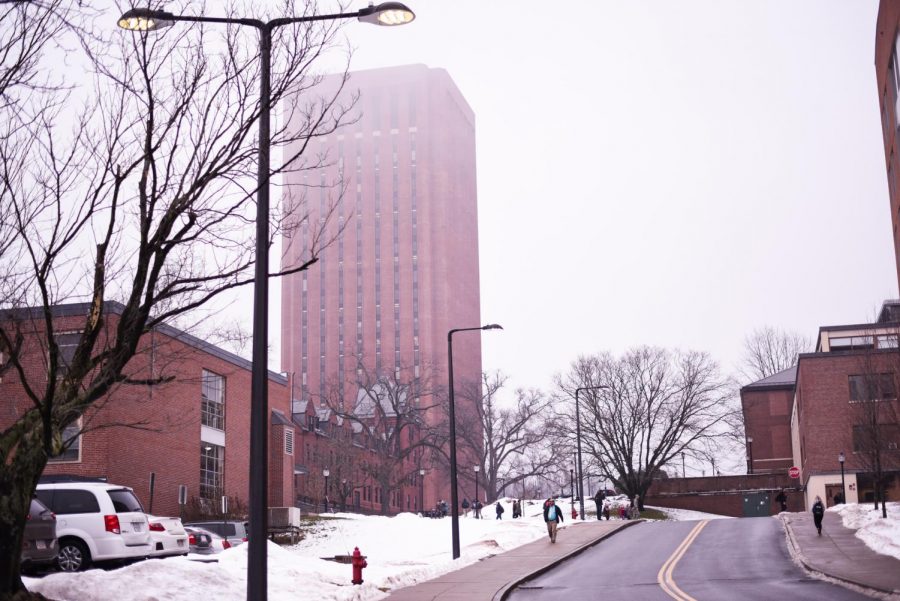The University of Massachusetts is home to almost 3,400 international graduate and undergraduate students from 115 countries, according to Pamela Dutta, who recently became the associate director of international student and scholar success at the International Programs Office.
To welcome these students, the International Programs Office and the Student Affairs Life co-sponsored an “International Coffee Hour” at Blue Wall on Thursday, Jan. 25.
The private room was packed with dozens of students discussing their transition to UMass and, of course, the number one campus dining in the country.
Mahin Jalalkhan, a senior environmental science and biology major from Toronto, Canada enjoys the event and getting to meet new friends from across the globe.
“I’ve met people from Singapore, India, China, Lebanon, Denmark, Germany, the UK, Australia, and so many more,” she said. “But there are certain things that we can all bond with,” Jalalkhan said.
According to Jalalkhan and other students at the event, some of these bonding experiences included the amount of traveling these students face to get to campus, being introduced to an entirely new surrounding all at once and, at times, navigating language barriers.
“Some of the issues are some uncertainties with visas, and some people are sometimes afraid to go home because they may not be able to come back just due to the ever-changing visa requirements,” Jalalkhan said.
Recognizing the problems these students face, Dutta said, “I think generally, having more social spaces for students to gather is a good thing, especially during a time when there is a little bit of uncertainty.”
She added, “I think we should do these more often to make sure people know that there is a comfortable place for them and a safe space where there are people that they can talk to and resources.”
According to Dutta, last year was the largest intake of international students UMass has ever had, and some students traveled much further than others to get to campus.
When asked about the differences between school in the United States as opposed to back home in Malaysia, Nurul Aiman, an undergraduate chemical engineering major, explained how the entire learning system is different.
“The things that we learn here are applicable to our jobs, whereas we learn everything in Malaysia,” she said.
According to Aiman, the teaching style in Malaysia differs greatly as well.
“Back home, we have a large two-hour midterm exam and a final three-hour exam. There’s just a lot more to learn and everything is memorized. In here, we don’t need to memorize things, we just need to understand. Everything was traditional on paper,” Aiman said, who also described how the professors are much more compassionate at UMass.
“They ask you questions that they know you can answer, and they are very patient and understanding,” Aiman said.
Gretchen Keller can be reached at [email protected] and followed on Twitter @gretchenkellerr.




















